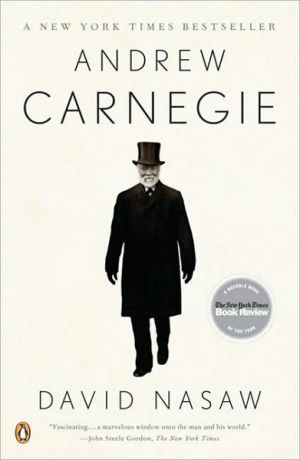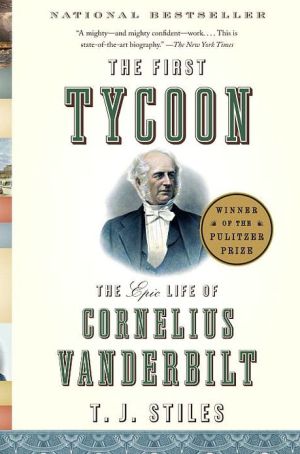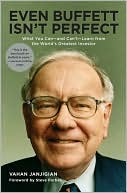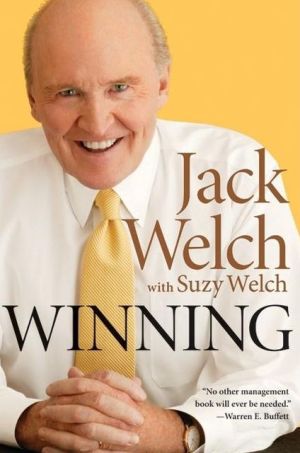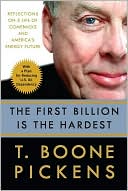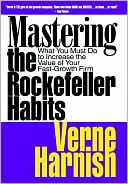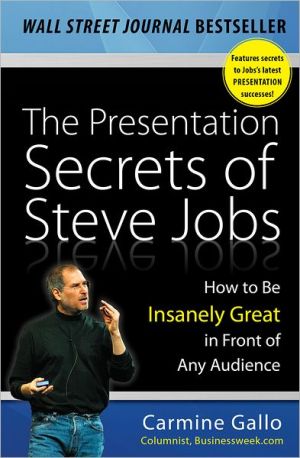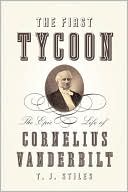Andrew Carnegie
In this magnificent biography, celebrated historian David Nasaw brings to life the fascinating rags- to-riches story of one of our most iconic business legends-Andrew Carnegie, America's first modern titan. From his first job as a bobbin boy at age thirteen to his status as the richest man in the world upon retirement, Carnegie was the embodiment of the American dream and the prototype of today's billionaire. Drawing on a trove of new material, Nasaw brilliantly plumbs the core of this...
Search in google:
Majestically told and based on materials not available to any previous biographer, the definitive life of Andrew Carnegie-one of American business's most iconic and elusive titans-by the bestselling author of Chief: The Life of William Randolph Hearst. Celebrated historian David Nasaw, whom The New York Times Book Review has called "a meticulous researcher and a cool analyst," brings new life to the story of one of America's most famous and successful businessmen and philanthropists---in what will prove to be the biography of the season. Born of modest origins in Scotland in 1835, Andrew Carnegie is best known as the founder of Carnegie Steel. His rags to riches story has never been told as dramatically and vividly as in Nasaw's new biography. Carnegie, the son of an impoverished linen weaver, moved to Pittsburgh at the age of thirteen. The embodiment of the American dream, he pulled himself up from bobbin boy in a cotton factory to become the richest man in the world. He spent the rest of his life giving away the fortune he had accumulated and crusading for international peace. For all that he accomplished and came to represent to the American public--a wildly successful businessman and capitalist, a self-educated writer, peace activist, philanthropist, man of letters, lover of culture, and unabashed enthusiast for American democracy and capitalism--Carnegie has remained, to this day, an enigma. Nasaw explains how Carnegie made his early fortune and what prompted him to give it all away, how he was drawn into the campaign first against American involvement in the Spanish-American War and then for international peace, and how he used his friendships with presidents and prime ministers to try to pull the world back from the brink of disaster. With a trove of new material--unpublished chapters of Carnegie's Autobiography; personal letters between Carnegie and his future wife, Louise, and other family members; his prenuptial agreement; diaries of family and close friends; his applications for citizenship; his extensive correspondence with Henry Clay Frick; and dozens of private letters to and from presidents Grant, Cleveland, McKinley, Roosevelt, and British prime ministers Gladstone and Balfour, as well as friends Herbert Spencer, Matthew Arnold, and Mark Twain--Nasaw brilliantly plumbs the core of this facinating and complex man, deftly placing his life in cultural and political context as only a master storyteller can. The Washington Post - Jonathan Yardley Carnegie…is the giant of the Gilded Age, his only real rival being his contemporary and friendly acquaintance John D. Rockefeller. Never has this story been told so thoroughly or so well as David Nasaw tells it in this massive and monumental biography. Nasaw, who teaches history at the City University of New York and is the author of an excellent biography of William Randolph Hearst, has gotten access to a great deal of material unavailable to previous biographers and has made the most—at times too much—of it. Andrew Carnegie would be a better book had it been pared down from 800 pages of text to, say, 650, because Nasaw is in love with his research and cannot let go of it even when it becomes redundant, but only readers laboring under constraints of time are likely to complain; this is biography on the grand scale, and on the whole it lives up to its author's ambitions.
\ John Steele GordonMr. Nasaw tells this tale extremely well. Highly readable despite its length, Andrew Carnegie shows signs of prodigious original research on almost every page: the Wiscasset, the ship that brought the Carnegie family to America, “set sail from Glasgow in early July (not May 17, as Carnegie wrote in his Autobiography and his biographers have repeated). … I expect it will be the definitive work on Carnegie for the foreseeable future, and it fully deserves to be.\ — The New York Times\ \ \ \ \ Jonathan YardleyCarnegie…is the giant of the Gilded Age, his only real rival being his contemporary and friendly acquaintance John D. Rockefeller. Never has this story been told so thoroughly or so well as David Nasaw tells it in this massive and monumental biography. Nasaw, who teaches history at the City University of New York and is the author of an excellent biography of William Randolph Hearst, has gotten access to a great deal of material unavailable to previous biographers and has made the most—at times too much—of it. Andrew Carnegie would be a better book had it been pared down from 800 pages of text to, say, 650, because Nasaw is in love with his research and cannot let go of it even when it becomes redundant, but only readers laboring under constraints of time are likely to complain; this is biography on the grand scale, and on the whole it lives up to its author's ambitions.\ —The Washington Post\ \ \ Publishers WeeklyWithout education or contacts, Andrew Carnegie rose from poverty to become the richest person in the world, mostly while working three hours a day in comfortable surroundings far from his factories. Having decided while relatively young and poor to give all his money away in his lifetime, he embraced philanthropy with the same energy and creativity as he did making money. He wrote influential books, became a significant political force and spent his last years working tirelessly for world peace. Yet he was a true robber baron, a ruthless and hypocritical strikebreaker who made much of his money through practices since outlawed. Nasaw, who won a Bancroft Prize for The Chief, a bio of William Randolph Hearst, has uncovered important new material among Carnegie's papers and letters written to others, but comes no closer than previous biographers to explaining how such an ordinary-seeming person could achieve so much and embody such contradictions. He concentrates on the private man, including Carnegie's relations with his mother and wife, and his extensive self-education through reading and correspondence. His business and political dealings are described mostly indirectly, through letters to managers, congressional testimony and articles. Nasaw makes some sense out of the contradictions, but describes a man who seems too small to play the public role. While Peter Krass's Carnegie and Carnegie's own autobiography are more exciting to read and do more to explain his place in history, they also leave the man an enigma. 32 pages of photos. (Oct. 24) Copyright 2006 Reed Business Information.\ \ \ \ \ Library JournalThis concisely titled but weighty tome from CUNY historian Nasaw (The Chief: The Life of William Randolph Hearst) adds a new century's insight into a figure whom we all thought we knew so well. Drawing on unpublished chapters of the industrialist/philanthropist's Autobiography, his associates' diaries, and his correspondence, Nasaw nimbly uses the trajectory of Carnegie's familiar rags-to-riches story as a framework upon which to analyze this self-educated, intellectually curious, and always ambitious dynamo's progress toward initiatives promoting reading, culture, and international peace. He also scrupulously authenticates or discounts legendary stories related in the Autobiography. Nasaw's clearly written book on a man who deftly moved from the old moral sensibilities of his native Scotland to the new capitalist political economy of America speaks directly to the reader and offers more than James T. Baker's Andrew Carnegie: Robber Baron as American Hero and Peter Krass's Carnegie. The study of a prodigious presence on the world stage, vigorous and optimistic until World War I sapped his faith in the future, this work is well positioned to earn a valuable place on the shelves of academic and public libraries as well as those of professional historians.-Frederick J. Augustyn Jr., Library of Congress Copyright 2006 Reed Business Information.\ \ \ \ \ Kirkus ReviewsRobber baron? Capitalist butcher? Angel? Industrialist-philanthropist Andrew Carnegie has been many things to many people, and in this grand biography, he's all of them. Warren Buffett's recent decision to give most of his $30-billion-plus fortune to charity squares neatly with Carnegie's view that it is a mark of shame to die with money in the bank; in that matter, but not alone, Nasaw's overstuffed and very well-written biography is timely and instructive. A poor Scottish immigrant, Carnegie impressed a succession of employers with his skills, intelligence and diligence. He also had a Machiavellian bent, and by the time he was 30, he had built a financial empire based on insider contracts to supply the Pennsylvania Railroad with materials and build iron bridges for it. Carnegie's Protestant ethics became situational; he hired a substitute in the Civil War and guided money into his own pocket as a civilian advisor to the government. A shrewd investor, he survived economic panics and made out fine in booms, shielded by a strategy of using other people's money to expand his interests. The darkest side of Carnegie's character emerged when he and his partners reversed earlier policies of rewarding workers with high wages and benefits, allowing unions to operate freely. Leaving it to lieutenants to manage matters, Carnegie-whose personal fortune probably exceeded Bill Gates's today-spent more and more time in Europe as labor unrest mounted in the 1880s and '90s, exemplified by the bloody strike at his Homestead steel plant. Bowed, Carnegie devoted himself to philanthropy, endowing libraries and scientific institutions and pursuing anti-imperialist and pacifist causes, very unlike most of hisfellow Republicans-from whom he pointedly split. A complex man of parts, then, not all of them good. Nasaw (The Chief: The Life of William Randolph Hearst, 2000) does brilliant work in bringing the man to life.\ \
